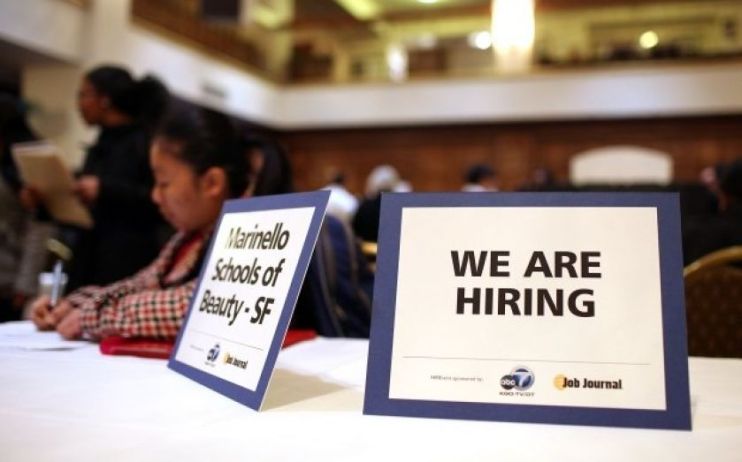US adds 130,000 jobs in August as trade war slows growth

The US added a modest 130,000 jobs to the economy in August, as its trade war with China finally appeared to take a toll on hiring.
The figure fell to just 96,000 jobs excluding government recruitment last month, the lowest number since May.
Read more: Sterling falls as investors remain cautious ahead of US jobs data release
America’s unemployment rate stayed near 3.7 per cent, the Labor Department said, for the third month in a row. It is nearly the lowest level in 50 years.
On average the US economy has added 150,000 new jobs each month for the last six months.
Meanwhile June and July data was revised downwards to show that 20,000 fewer jobs were created than previously thought.
Growing investor concern
“The market has been surprised by disappointing job numbers and today’s data is likely to further entrench investor concerns around the strength of the US economy,” said Charles Schwab’s UK managing director, Richard Flynn.
Despite the Fed’s interest rate cut in July, investors are still forecasting at least two more cuts this year, with doubts it was truly a “mid-cycle adjustment”.
Flynn added: “Much of the recent market volatility has likely been a symptom of investors trying to determine the extent of the U.S. economy’s weakness. Yet, the recently poor stock market performance has been driven by policy that, if reversed, could cause markets to recover quickly.”
Sustained slowdown
With the number of jobs created 30,000 less than the 160,000 expected, not discounting the 25,000 in census employees, there appears to be evidence of a “sustained slowdown in employment growth”.
Neil Wilson, chief market analyst for Markets.com, commented: “Having been quite relaxed about monthly prints missing expectations from time to time this year, there does appear to be evidence of a material and sustained slowdown in employment growth, which is not a reason to panic by any means but will for sure be an area of discussion for the Fed.”
But as well as the steady unemployment rate, wage growth was also up 0.4 per cent month on month and 3.2 per cent up from a year ago.
“Market reaction to the print was relatively muted, largely because not a lot has changed overall with regards expectations for the Fed – today’s numbers fit into the current market narrative,” Wilson said. “The softer payrolls number was offset by stronger wage growth that indicates inflationary pressures may start to creep up on the Fed.
Geopolitical tension
The price of gold was pushed higher, rallying to around $1516 in the wake of disappointing economic data, while the trade war and other political tensions have prompted investors to remain cautious.
Read more: Canadian PM Trudeau accuses China of using ‘arbitrary detention’ for political gain
Chief market analyst at Think Markets, Naeem Aslam, commented: “The job market is still soft and this was the message in the economic data released today.
“There is no doubt that traders have been active in taking some profit off the table in the past couple of days. The fact is that the on going trade war has impacted the economy and we are still in the midst of all geopolitical tensions.”